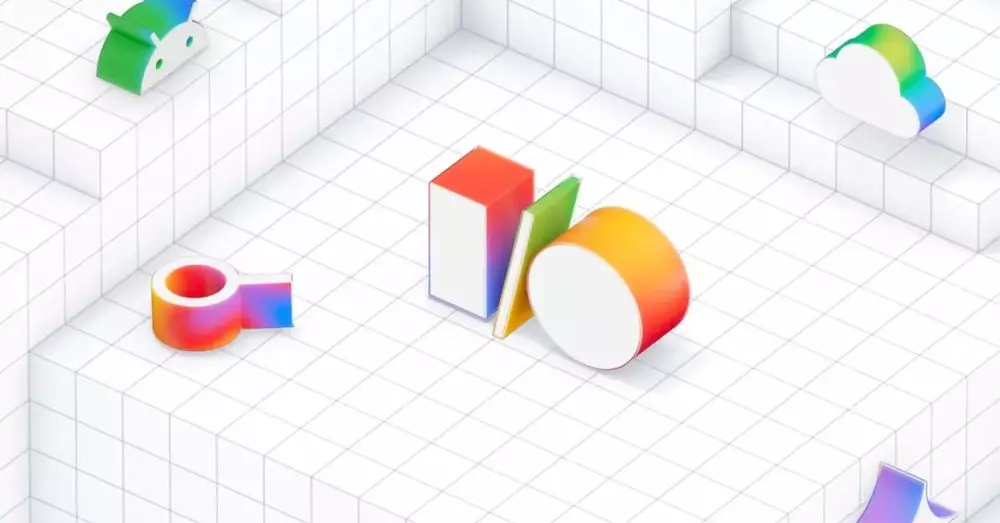As the tech world gears up for Google’s I/O developer conference, excitement hums in the air, fueled by the anticipation of groundbreaking announcements in artificial intelligence (AI) and extended reality (XR). This annual gathering, typically a platform for declaring revolutionary advancements in software, seems poised to mark a pivotal moment in how we interact with technology. For the first time in years, however, the focus shifts dramatically; notable changes in the Android operating system will take a backseat. Instead, Google is set to plunge headfirst into an exploration of the future, driven primarily by its enhancements in AI. This powerful emphasis on AI comes at a time when the landscape is increasingly competitive, as tech stalwarts like Microsoft, Meta, and OpenAI vie for supremacy in the AI arena.
The Stage is Set for AI Dominance
The I/O keynote is not just any event; it’s a spectacle where Google showcases its ambitions, expectations, and technological prowess. On May 20th, starting at 10 AM PT, the anticipation reaches a crescendo as announcements regarding Google’s AI initiatives and enhancements to its Gemini platform take center stage. You might wonder if the absence of major Android OS news diminishes the event’s allure. The truth is, the current landscape strongly suggests otherwise. With AI fundamentally reshaping industries, Google is right to prioritize this transformative technology over its mobile operating system, which has seen successive iterations.
The chat around Gemini underscores Google’s evolutionary trajectory; this AI stalwart is expected to introduce features that will revolutionize our experiences on phones and other devices. Companies like Google thrive on innovation, and Gemini, with its advanced capabilities, can push the boundaries of user interaction and contextual understanding. Furthermore, the landscape is sizzling with competition; as Mike Johnson pointed out, the keyword “AI” has become synonymous with the contest for technological relevance. This year’s conference is bound to be insightful as we witness Google’s latest revelations juxtaposed with Microsoft’s recent announcements.
The Role of Extended Reality
While AI dominates the conversation, it is crucial to understand that this year’s I/O will still cast a glance at the growing field of XR. Google’s attempts to solidify its role within this realm, particularly with its XR operating system, demonstrate a long-term vision aimed at integrating augmented and virtual realities into our everyday lives. The current tech race is increasingly leaning toward creating immersive experiences that blend both the digital and physical worlds. With the recent speculation surrounding Google’s prototype smart glasses, the opportunity to explore XR seems ripe for the taking.
As Samsung approaches the launch of its Project Moohan Android XR headset, Google faces pressure to unveil its advancements in XR technology or risk ceding the spotlight. A unified approach to merging AI and XR could redefine consumer experiences, setting the foundation for unique products and innovative applications. This synergy forms the backbone of Google’s future roadmap, and I/O serves as a prime venue to communicate its ambitions to the global audience.
The Future of Hardware and Software
Interestingly, Google has shifted gears away from the hardware-centric announcements that once characterized its I/O events. The expectation once was to unveil new iterations of Pixel phones or Nest tech, but the current focus appears squarely on improving software capabilities and harnessing AI’s potential. The rationale is understandable; a strong emphasis on software-driven innovations aligns with current market demands and technological trends. However, lingering questions remain regarding Google’s hardware strategy.
While it seems improbable that Google will disclose new devices this year—having previously opted to prioritize announcements that complement its AI narrative—there remains a palpable curiosity about whether any hardware will emerge during the conference. The absence of phones might suggest a tactical retreat; however, reinforcing its existing hardware with robust software capabilities could yield impressive results.
The upcoming I/O promises to be more than an avenue for announcements; it’s an inflection point in Google’s strategic approach to hardware, software, and their intertwining future. Through AI and XR, Google seems prepared to redefine how technology integrates into our lives, marking the onset of a brave new era.

